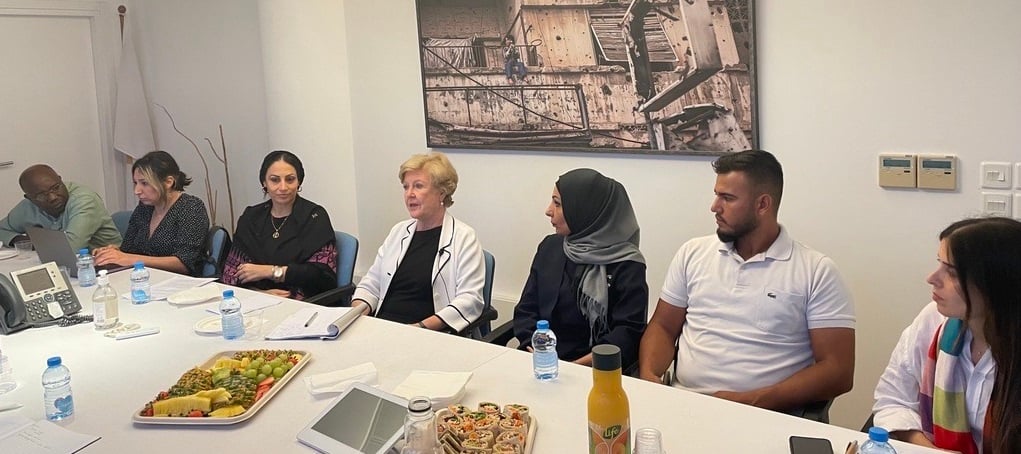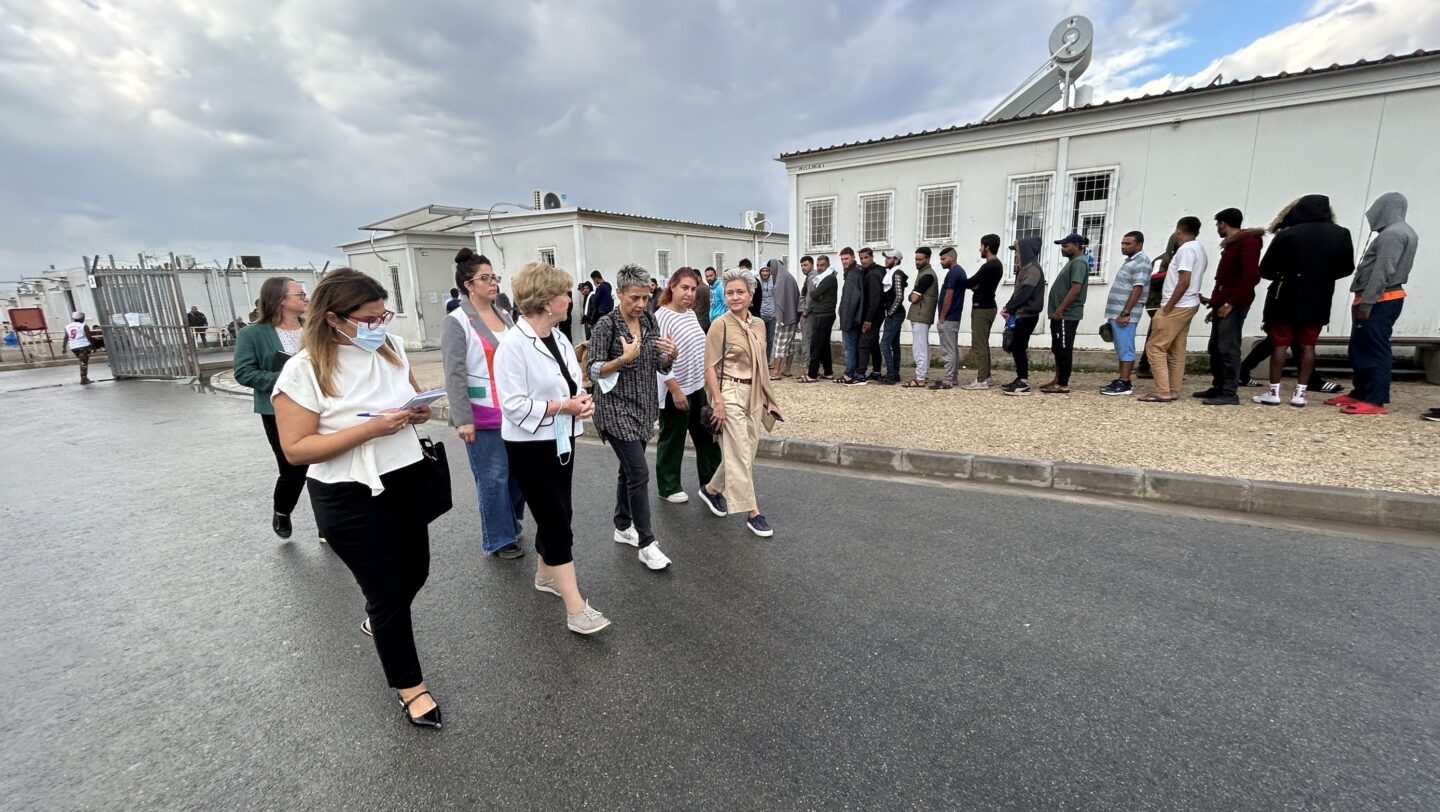The conditions of Cyprus’ reception centres and have sensibly improved, according to the UN Refugee Agency’s (UNHCR) assistant high commissioner for protection, Gillian Triggs, who concluded a two-day visit to the island on Friday.
Triggs, who also inspected the country’s reception centres in 2021, also praised the efforts made to improve the asylum system.
“I’m pleased to see the improvement of conditions within the reception centres, and the efforts made to improve the asylum system,” she told the media on Friday.
“We, at UNHCR, remain ready to support the government of Cyprus in ensuring dignified living conditions for asylum-seekers in the community. The inclusion of people in need of international protection in the host community is key, both to social cohesion and economic inclusion,” Triggs said.
“My main message to the authorities is the need to adopt a national integration strategy. This is particularly important given recent increasing incidents of racial violence in Cyprus. Integration is for the benefit of everybody in society.”
Triggs also raised the issue of access to territory and asylum and expressed her concern over reports of boats being returned to neighbouring countries.
She also addressed concerns over incidents of asylum-seekers becoming stranded in the UN Buffer Zone, without access to asylum procedures, shelter, food, hygiene, or other facilities.
Triggs reiterated the need for progress on the EU Pact on Migration and Asylum, which she called “vital to break years of deadlock on EU asylum matters.”
During her visit, Triggs also met refugees, asylum-seekers, refugee volunteers, and NGOs, who shared their experiences and concerns with her.
They discussed the difficulties they face in securing accommodation, accessing employment and social assistance, as well as education. Refugees and asylum-seekers also told Triggs about recent violent racist incidents they experienced in Paphos and Limassol.
“We had frank and constructive discussions with the government on all these issues, including on the housing gaps and additional restrictions for asylum-seekers in accessing employment,” Triggs said.
“The recent violent incidents targeting refugees and asylum-seekers are particularly worrying. These underscore the imperative for all stakeholders to collaborate in fostering a more inclusive and welcoming society, free from xenophobia and racism.”
“I’m very encouraged by the commitments we have received, including with regards to a reassessment of the government policy on access to work for asylum-seekers. UNHCR stands ready to support the government of Cyprus in all its efforts,” she concluded.
There are currently 26,995 asylum-seekers whose applications are pending at the Asylum Service as of the end of September 2023.







Click here to change your cookie preferences